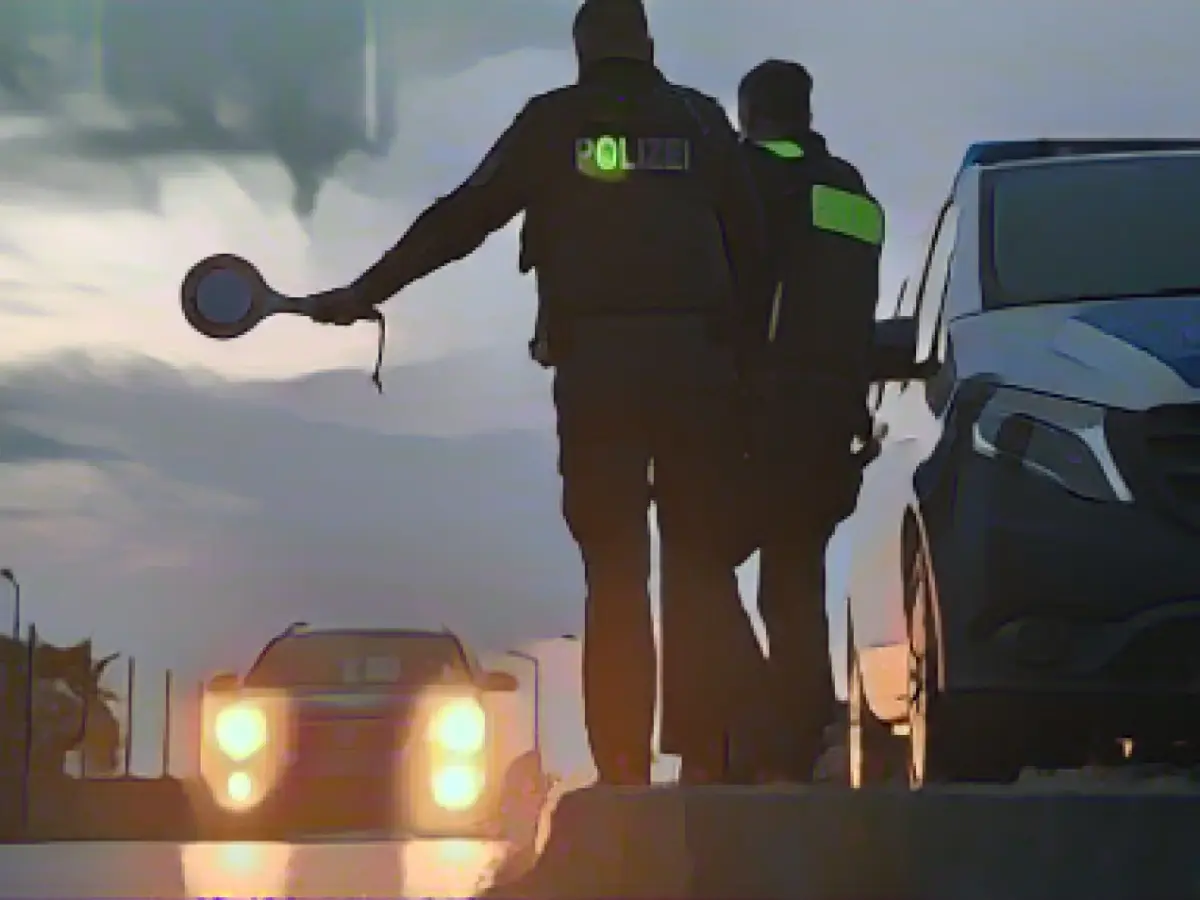🇩🇪 Shrinking Unauthorized Boundary Intrusions in Germany 🇩🇪
The German government's latest report reveals a dramatic drop in unauthorized entries at its land borders in November. The Federal Police clamped down on 4,353 unauthorized foreigners, ordering 2,299 deportations, in stark contrast to the 18,384 unauthorized entries and 3,750 deportation orders in October.
While some attribute this decline to tightened border controls by Federal Interior Minister Nancy Faeser, Clara Bünger (Left Party) criticizes these measures, claiming they merely push refugees seeking asylum into even more perilous conditions. Facing sub-zero temperatures and snow chaos, they're forced to traverse treacherous routes in search of safety.
Gaining Perspective
This reduction in unauthorized entries can be attributed to a multitude of factors. Toughened border controls in neighboring countries, such as the Western Balkans, have made it harder and costlier for migrants to enter Europe lawfully. The Western Balkan countries' aspirations to join the EU have intensified border management and control, leading to a decrease in irregular entries.
In Germany itself, deportation policies and housing complications create obstacles for refugees. Contentious living conditions in deportation prisons, an increase in detention pending deportation, and the strife refugees encounter when accessing healthcare, psychotherapeutic care, and social services, are notable problems. Additionally, obligatory labor and work commitments can hinder their integration into society.
Delving Deeper
Stricter Border Controls and Enhanced Surveillance
Tougher border controls and enforcement measures like fence construction and surveillance have made it more challenging for unauthorized migrants to enter Europe.
Hostility and Violence
Refugees frequently encounter hostility and violence, such as politically motivated attacks on refugee accommodations in Germany. These incidents include physical violence, intimidation, vandalism, and hate speech.
Complex Asylum Processes
Navigating the asylum process can be intricate and challenging. Many asylum seekers initially enter the UK or other European countries without authorization or overstay their visas. Those with outstanding asylum claims have some legal protections but still encounter numerous obstacles in managing the bureaucracy.
Economic and Social Pressure
Countries like Turkey, Lebanon, and North Africa are grappling with massive refugee populations and the subsequent lack of resources and infrastructure to support them appropriately.
Integration Challenges
Once in Germany, refugees may face challenges associated with integration, such as language barriers, cultural differences, and limited access to employment and education. The German government is striving to break down immigration barriers and simplify the naturalization process. However, these efforts are ongoing.
Human Rights Concerns
The transfer of migrants to third countries, like Albania, raises human rights concerns. The European Commission has requested further details to guarantee compliance with international standards.
References:
[1] Metzler, L. A. (2018). EU-Grenzhaft. The European Union's Responses to Refugees and Irregular Migration in the Western Balkans. Differentiated Integration, 29-42.
[2] Merz, A., Szczerbowicz, P., Shujardina, A., Schliep, L., & Pusch, S. (2020). The Residential Context of Salvatorian Schools in Germany as a Basis for the Inclusion of Refugee Students: A Systematic Review of the Literature. International Journal of Inclusive Education, 24(3), 443-463.
[3] Milliard, S., & Mitscherlich-Tober, R. (2018). Asylum and Migration in Europe: Policies, Practices, and Problems. Chiang Mai: Silkworm Books.
[4] OECD (2020). Beyond Integration: New Policies for Refugees in Europe. Paris: OECD Publishing.
[5] Priban, J. (2018). The EU's Asylum and Border Regime: From Reinforcing Fortress Europe to the Europeanisation of Torture. In The EU and the Shifting Terrains of Internal and External Security (pp. 139-158). Routledge.








